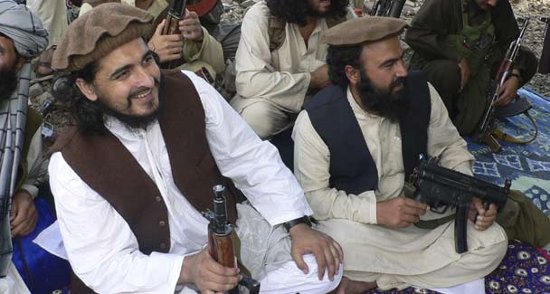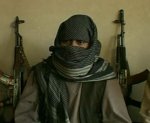Iraq Report: The Day After Samarra
Yesterday's destruction of the twin minarets of the revered Shia al-Askaria mosque in Samarra threatens to reignite the sectarian war which began in February of 2006 after the dome of the same mosque was destroyed by al Qaeda in Iraq. Almost immediately after the minarets were bombed, Iraqi and Coalition forces dispatched units to secure mosques and religious sites nationwide, and imposed a curfew in the major flashpoint cities. Iraqi and U.S. forces cordoned Sadr City to prevent the Mahdi Army from attacking Sunni neighborhoods in Baghdad.
Reports from Iraq indicate five mosques were attacked immediately after the Samarra bombing - 3 in Iskandariyah, one in Baghdad, and one in Basra. A Shia shrine was bombed in Khalis in Diyala, however al Qaeda has been attacking Shia sites in the province.
Iraqi and U.S. security forces appear to have clamped down on the violence within the first 24 hours of the Samarra bombings. No attacks on mosques or religious sites were reported on Thursday. There were no reports of major attacks by death squads, and violence in Iraq has been remarkably low. The real test will come after Friday's sermons, and when the curfews begin to be lifted in the days and weeks ahead.
The Samarra mosque bombing occurred as al Qaeda has stepped up its bridge-bombing campaign. A bridge in Diyala province was attacked on Wednesday. "The blast destroyed the east-bound lane of the bridge and left the west-bound lane standing, but impassable," noted Multinational Forces Iraq. This is the fourth bridge attacked in four days. Al Qaeda in Iraq appears to be conducting a scorched earth policy while attempting to disrupt military traffic across the rivers and away from their safe havens in Diyala province. Al Qaeda also murdered 14 members of the Iraqi security forces and posted the video on the internet.
U.S. and Iraqi security forces continue to press the fight against al Qaeda in Iraq's networks as well as the Sunni and Shia insurgency. Twenty-five al Qaeda suspects were captured in raids in Mosul, Tarmiyah, Amiriyah and Baghdad. The Tarmiyah raid resulted in the capture of an "individual believed to be a close associate of Omar al Baghdadi," the leader of al Qaeda's Islamic State of Iraq. Also, Coalition forces captured 15 al Qaeda suspects in Mosul on June 11.
Multiple raids and operations were carried out on June 13. The most important operation resulted in the death of Kamal Jalil Bakr 'Uthman, the military emir of Mosul. 'Uthman "coordinated and facilitated suicide bombings in the Mosul area" as well as "facilitated the movement of more than 100 foreign fighters through safe houses in the area, and orchestrated attacks against Iraqi and Coalition Forces." Two terrorists were killed and 13 captured during a raid on a Baghdad car bomb network.
Also, on June 13, Coalition forces killed one member of the Iranian backed Qazali network, and captured 2 more during a raid in Baghdad. "The targeted individual of the morning™s operation is associated with a kidnapping cell and is believed to be directly involved in the November Ministry of Health kidnappings," which resulted in the disappearance of 5 British nationals.
On June 12, U.S. and Iraqi soldiers killed 6 terrorists and captured 19 during multiple operations in Baqubah, Diyala. Numerous caches were found, including one with "approximately 200 pounds of home made explosives, numerous anti tank mines, mortar and artillery rounds, and other IED making materials." Diyala is al Qaeda country, and Baqubah is the declared capital of its Islamic State.


